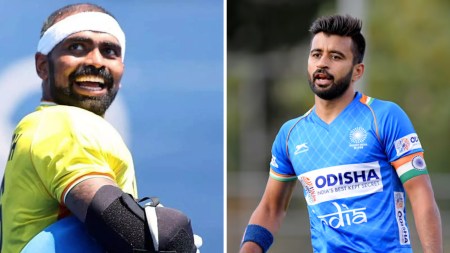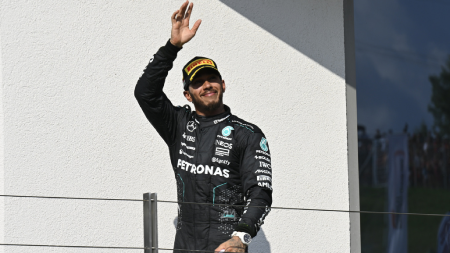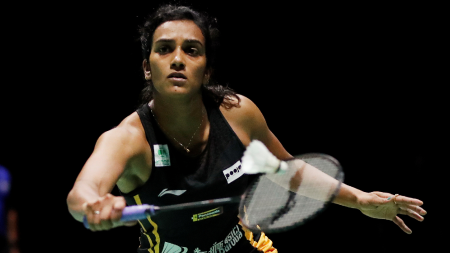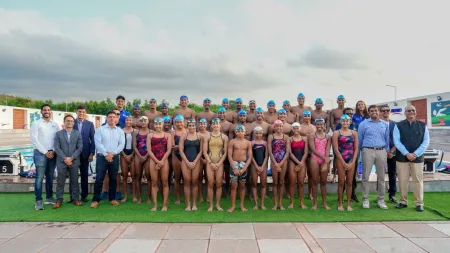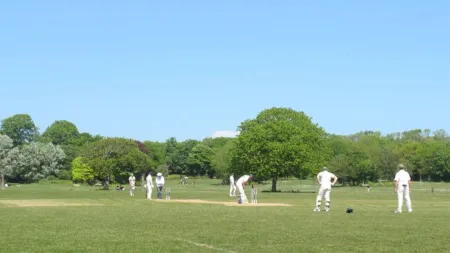Olympics 2024: As Paris turns into a stadium, some complaints – and a lot of hope
THE WAITER grumbles something in French and it certainly isn’t “bonjour”.
On any other Wednesday morning, this chic brasserie near the banks of the River Seine would have had waves of customers flowing in and out. But a “lockdown” that reminds him of the pandemic, a part of the strict security measures before Friday’s opening ceremony, means business is slow and the serveur’s tips have dried up. So, he’s grumpy.

And he isn’t the only one. The Games are here and the locals seem testy.
Then again, Simon Kuper issues a tongue-in-cheek disclaimer. “Parisians complain about everything all the time,” says the British-French author.
A lament can be a conversation starter. Be it ‘se plaindre’ (grumbling generally), ‘raler’ (complaining for fun), or ‘faire la gueule’ (sulking).
They crib that the build-up has been mired in political turmoil of Olympic proportions. Scoff over the tripling public transport rates, the sudden metro station closures and the out-of-bounds city centre. They whine about the rats swimming in the Seine. And worry that the balconies of the Haussmann-era buildings along the iconic river may not be able to take the weight of the crowds expected to gather there to watch the opening ceremony.
Complaining, in this Olympic season, has become a medal sport. But like any host fearing that everything could go wrong when the guests turn up, the last-minute jitters and trepidation are finely counter-balanced with growing excitement and fervent hope.
Hope that when the actual Games begin, the cynicism will make way for passionate cheering as more than 10,000 athletes from 208 countries fight in 329 medal events across 32 sports. Hope that for whatever it’s worth, the Paris Games will mark the return to normalcy of the Olympics after Tokyo’s ‘Ghost Games’.
Held amid the Covid pandemic in 2021, the Japanese capital was forced to close the doors of its majestic stadiums to the public. The closest the locals got to any sporting action was standing outside the fenced arenas or around the street corners, taking photos of the buses ferrying athletes.
In contrast, the French capital has been transformed into one giant stadium. For the next three weeks, its iconic monuments — the Eiffel Tower, Grand Palais, Invalides and Place de la Concorde — will turn into playgrounds.
The reduced access and temporary structures around these landmark sites may be a source of irritation for the tourists who have braved the Olympic surge to make Paris their summer destination. But the athletes who competed in front of empty stands three years ago, performing to pre-recorded claps and AI-generated chants, will write their scripts in postcard-perfect surroundings.
Paris hasn’t bothered with constructing modern-day coliseums and draping the entire city with Olympic brandings. But, in its typical understated, effortless fashion, the Olympics is all you see wherever you look.
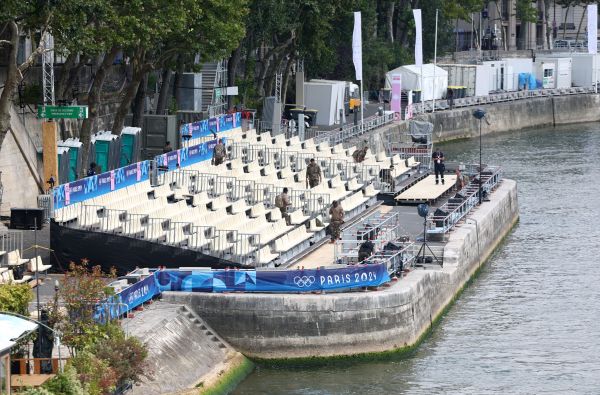 Members of the France military check the stand near the Seine river ahead of the Olympics. (REUTERS/Yves Herman)
Members of the France military check the stand near the Seine river ahead of the Olympics. (REUTERS/Yves Herman)
The ubiquitous five rings that adorn the Eiffel Tower also hang gracefully on the terminal of the Charles de Gaulle airport. The Games’ colours are splashed on the streets and the dedicated Olympic lanes will ensure the athletes don’t get stuck in traffic in this city where more people travel on bicycles than anywhere in the world.
The drivers moan as their cars oscillate between the first and second gears in bumper-to-bumper traffic, but won’t steer into the empty ‘Jeux’ (Games) lanes, fearing a 135-euro (roughly Rs 12,200) fine.
There’s nothing more audacious, however, than Friday’s opening ceremony on the River Seine, which will see a flotilla of more than 200 boats in an outdoor celebration that’s never been seen before.
The creative director of the opening ceremony, Thomas Jolly, called the idea “typically French”, which, in essence, means there’s a compulsion “to not be like everyone else”. “Secondly, a little bit of insolence,” the 42-year-old theatre actor said. “Thirdly, audacity — which can sometimes come across as arrogance, which, let’s be honest, is the case with France.”
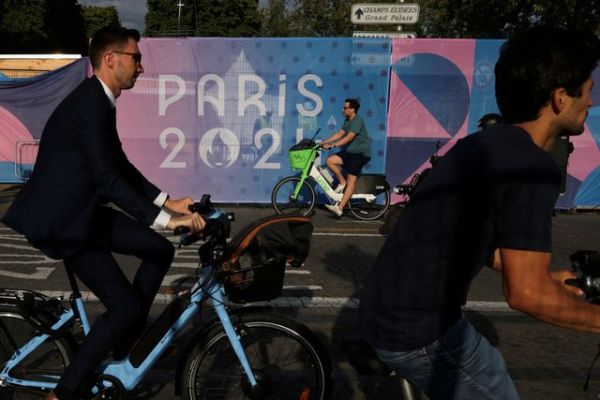 Paris hasn’t bothered with constructing modern-day coliseums. But, in its typical understated, effortless fashion, the Olympics is all you see wherever you look. (Reuters)
Paris hasn’t bothered with constructing modern-day coliseums. But, in its typical understated, effortless fashion, the Olympics is all you see wherever you look. (Reuters)
The instinct to wow the world has come at a price. The days leading up to the ceremony have been most disruptive. Cars are being stopped and searched every second kilometre. Pedestrians and cyclists have had to register for special QR codes to access the secured zones around the Seine. Both banks of the river have been shut down, leading to businesses — from booksellers to souvenir shops to restaurants — facing a practical closure.
Simon Kuper, the author of ‘Impossible City: Paris in the Twenty-First Century’, says the people who live or work by the river have been in “a kind of lockdown for days around the opening ceremony”. “So, to go to the supermarket, you need a pass. If you want to have a friend for dinner two days before the opening ceremony, you have to register that friend with the police. And the police have to see that he’s not a security risk,” Kuper says.
And so, the Parisians complain. Thousands have even left the city — or plan to in the next few days. But as Tokyo showed even in the harshest of conditions, once the Games are declared open and elite sport begins, all the noise fades into the background.
Disclaimer: The copyright of this article belongs to the original author. Reposting this article is solely for the purpose of information dissemination and does not constitute any investment advice. If there is any infringement, please contact us immediately. We will make corrections or deletions as necessary. Thank you.
